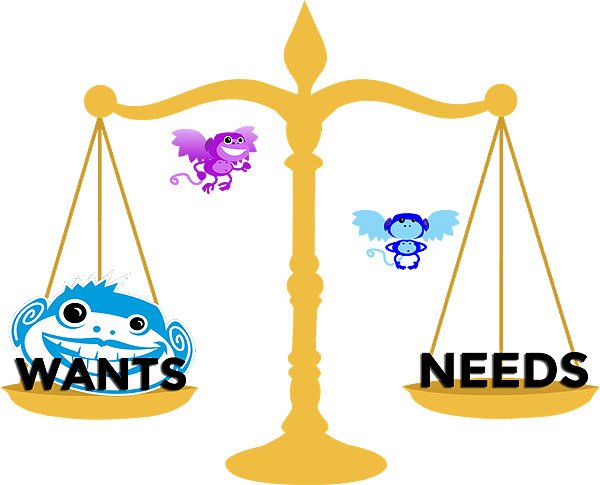The complexities of cross-border taxation can be daunting for individuals and businesses operating between Canada and the United States. From dual citizenships to investments in foreign real estate, cross-border tax issues are becoming increasingly pervasive, particularly for Toronto-based residents and organizations. The stakes are high—mismanagement can lead to hefty penalties, excessive tax burdens, and missed opportunities for optimization.
This guide offers clarity on cross-border tax challenges and highlights how expert accountants can help you make smarter financial moves. Whether you’re a Canadian investor in the U.S., a U.S. citizen living in Toronto, or operating a cross-border business, here’s what you need to know.
Understanding Cross-Border Taxation in Toronto
What Is Cross-Border Taxation?
Cross-border taxation refers to the financial and tax obligations that arise when earning income, owning assets, or conducting business in more than one country. For Toronto residents, this often involves navigating the intersecting tax systems of Canada and the U.S., both of which have unique requirements and complexities.
Key Scenarios That Require Cross-Border Tax Expertise
- Canadian Citizens Working in the U.S.
Managing U.S. income taxes while adhering to Canadian tax rules.
- U.S. Citizens Residing in Toronto
Ensuring compliance with IRS requirements despite residing outside the U.S.
- Businesses with Cross-Border Operations
Handling taxation for revenues earned across Canada and the U.S., including regulatory compliance.
The Role of Tax Treaties
The U.S.-Canada Tax Treaty ensures that taxpayers avoid double taxation on income. For example, a Toronto-based dual citizen can use the treaty’s provisions to claim foreign tax credits, reducing overall tax liabilities and aligning compliance with both the Canada Revenue Agency (CRA) and the Internal Revenue Service (IRS).
Common Cross-Border Tax Challenges
1. Dual Tax Filing Requirements
Toronto-based individuals and businesses often face the obligation of filing taxes simultaneously in Canada and the U.S. Failure to meet both CRA and IRS deadlines can result in penalties.
2. Determining Residency for Tax Purposes
The CRA and IRS use different criteria for tax residency. For example:
- The CRA evaluates your primary ties, such as property and dependents in Canada.
- The IRS applies tests like the Substantial Presence Test.
3. Foreign Income Reporting
Both the CRA and IRS require disclosure of foreign assets.
- T1135 Filing (CRA): Mandatory for Canadians holding foreign assets worth over CAD $100,000.
- FBAR (IRS): U.S. citizens must report foreign accounts totaling over USD $10,000.
4. Currency Conversion Complexities
Exchange rate fluctuations can significantly impact tax liabilities, requiring accurate reporting and adjustments when filing across borders.
5. Managing Foreign Tax Credits
Claiming foreign tax credits requires careful documentation to avoid double-taxation. Mismanagement may result in losing thousands in potential savings.
6. Cross-Border Retirement Accounts
Managing RRSPs and 401(k)s under the two tax systems can be complicated. Both CRA and IRS regulations dictate when and how withdrawals are taxed.
Why You Need an Expert Cross-Border Tax Accountant in Toronto
Specialized Knowledge
Expert accountants stay up-to-date with U.S. and Canadian tax legislation, ensuring your financial decisions align with evolving laws.
Tailored Financial Strategies
From claiming treaty-based exemptions to maximizing tax credits, professionals provide strategies customized to your unique situation.
Compliance and Risk Mitigation
Eliminate the risk of audits or penalties by ensuring your filings are error-free and compliant.
Seamless Tax Filing Experience
Simplify the process—professionals ensure documentation for both CRA and IRS requirements is organized and accurate.
Proactive Financial Planning
Plan ahead to minimize future tax liabilities through investment strategies, proper tax credit management, and optimized account structure.
Benefits of Optimizing Your Financial Strategy with Cross-Border Expertise
- Reduced Tax Burden
Save thousands by leveraging deductions, credits, and exemptions under the U.S.-Canada Tax Treaty.
- Streamlined Filing Processes
No need to juggle two tax systems alone—filing becomes efficient and stress-free.
- Maximized Investment Returns
Take a proactive approach to passive income and capital gains management, optimizing your financial growth over the years.
- Ensure Compliance
Avoid government scrutiny with fully compliant cross-border filings.
- Time and Stress Savings
Hand off intricate tax matters to professionals, freeing you to focus on running your business or planning your next investment.
Real-Life Examples of Cross-Border Tax Optimization
Case Study 1: Toronto Entrepreneur with U.S. Business Operations
A startup founder from Toronto expanded operations to the U.S., generating $500,000 in cross-border revenue. With the help of a cross-border tax accountant:
- Saved $35,000 annually through foreign tax credits.
- Avoided double taxation by utilizing U.S.-Canada Tax Treaty provisions.
Case Study 2: Dual Citizen Managing Retirement Accounts
A dual citizen optimized withdrawals from their RRSP and 401(k), reducing tax liability by over 25% through strategic timing and treaty exemptions.
Case Study 3: Canadian Investor in U.S. Real Estate
A Toronto-based investor acquired a property in Florida. By coordinating tax filings and deductions, they saved over $10,000 annually in taxable rental income.
How to Choose the Right Cross-Border Tax Accountant in Toronto
Key Qualifications to Look For
- Certified CPA with expertise in U.S. and Canadian tax systems.
- Strong understanding of the U.S.-Canada Tax Treaty.
Questions to Ask
- Have you worked with dual citizens or businesses like mine before?
- Are you familiar with managing RRSPs/401(k)s or rental income from U.S. properties?
- Do you offer year-round support for tax planning and compliance?
Benefits of Local Experts
Accountants based in Toronto are familiar with the unique financial and regulatory nuances of the region, providing added value.
Frequently Asked Questions (FAQs)
1. What is the U.S.-Canada Tax Treaty, and how does it work?
The treaty prevents double taxation by allowing taxpayers to claim credits or exemptions for taxes paid in the other country.
2. What documents do I need for cross-border tax filing?
You’ll need income statements, foreign account reports (T1135 or FBAR), relevant tax forms, and receipts for deductions.
3. How can I avoid double taxation?
Work with an accountant to claim foreign tax credits and leverage treaty benefits.
4. Can I manage my taxes without an accountant?
The complexity of rules across CRA and IRS makes DIY challenging. Hiring an expert ensures compliance and maximized savings.
5. How do cross-border tax accountants charge for their services?
Fees typically depend on the complexity of your situation, ranging from flat rates for simpler filings to hourly fees for intricate cases.
Optimize Your Cross-Border Financial Strategy Today
Don’t leave your financial future at the mercy of complicated tax systems. Expert cross-border tax accountants can help you reduce liabilities, maximize savings, and eliminate stress. Schedule a free consultation today and take control of your taxes with confidence.
SAL ACCOUNTING | Tax@salaccounting.ca | 55 Village Centre Pl, Suite 734, Mississauga,330 Bay St. Unit 1401, Toronto, ON M5J 0B6, ON L4Z 1V9 | (416) 848-8470
Phone : (416) 848-8470











